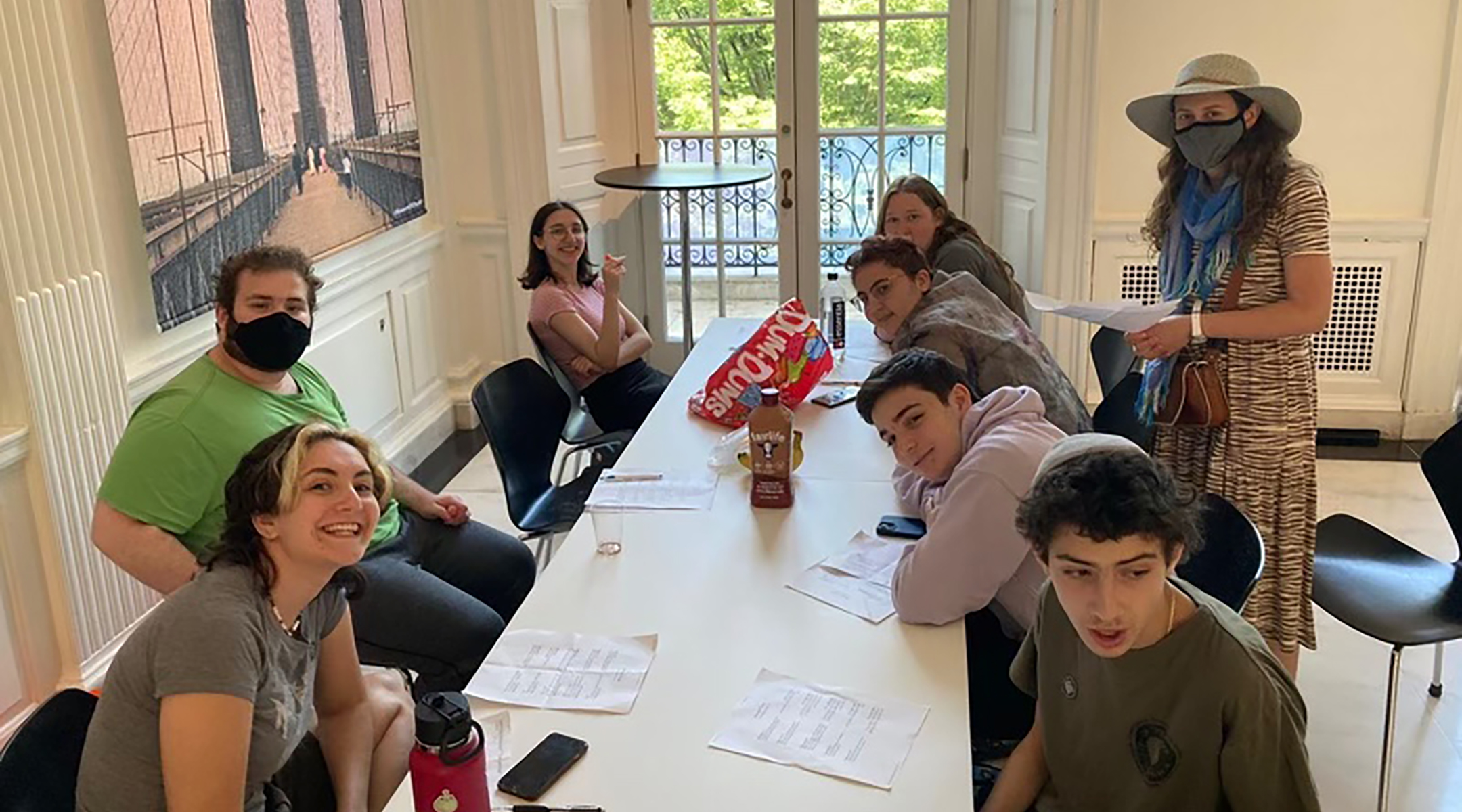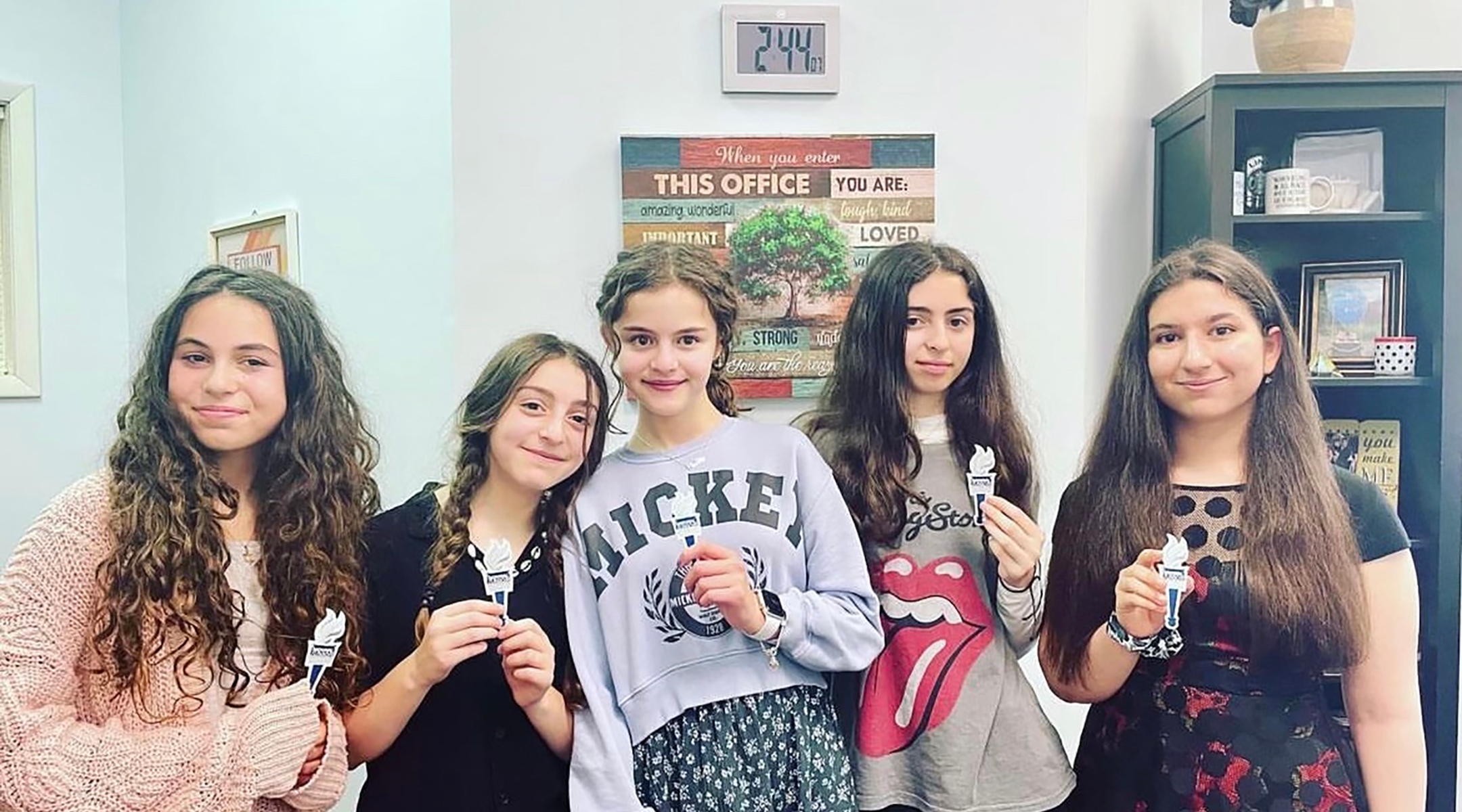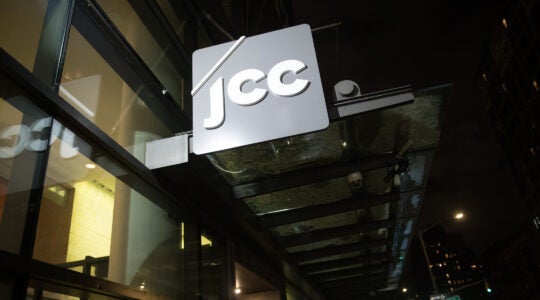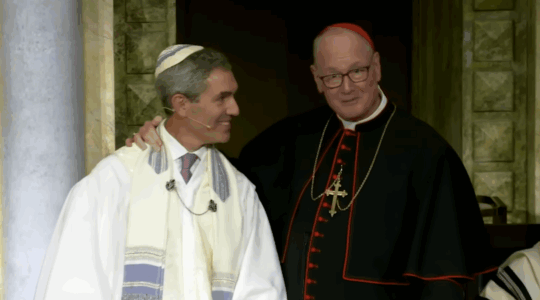This article was produced as part of JTA’s Teen Journalism Fellowship, a program that works with Jewish teens around the world to report on issues that affect their lives.
(JTA) — There had been hints of money trouble: no ink in the printers, no supplies in the maker space, teacher complaints. But Sion Cohen never imagined that her high school, The Idea School in Tenafly, New Jersey, would be closing mere months before the start of her senior year.
Almost immediately after she heard the news, Cohen, 17, began making plans to graduate early. She enrolled in online classes and reached out to her school’s guidance department to ensure she had enough credits to graduate. If she couldn’t spend her senior year at her beloved school, she didn’t want to spend it anywhere.
Mia Eskin, 13, was on the phone with her friends when a long email popped up on her cellphone. This is how she found out Gerrard Berman Day School, where she had attended for seven years, would be closing. Before she could hang up the call, she thought of all the things she would miss: the highly anticipated eighth grade Israel trip, spending every day with her friends that she had known since first grade and attending a school she considered home.
Cohen and Eskin are only two of over 130 students impacted by the recent closing of Jewish day schools in northern New Jersey. In 2021, Gerrard Berman Day School, a small K-8 community school in Oakland formerly affiliated with the Conservative movement, announced it would be closing after three decades. A year later, The Idea School, a project-based, queer-friendly Modern Orthodox school 25 miles away in Tenafly, also announced it would cease operations.
These closings left students with a difficult choice, forced to decide where and how to continue their Jewish and secular education.
This sudden change proved difficult for many students. Charlotte Barbach, 15, a freshman at Kinnelon High School, said that the closing took a toll on her mental health.
“I just broke down,” she said. “I was so sad. I started bawling in the car. It was really hard because I had been going to that school for like 10 years.”
Barbach took the closing as a chance to try something new and chose to attend public school. She said the transition was difficult at first, but she now considers her new school home.

Leo Milch and their friends at an ice cream truck at The Idea School on the last day before it closed. (Courtesy)
“The first day was a little rough,” Barbach said. “But once I made a good group of friends, it was pretty good.”
Both of the schools cited decreasing enrollment and money concerns as the main reasons for not returning the following school year.
Paul Bernstein, the CEO of Prizmah, an organization that provides resources for day schools, did not have specific information about these closings but said in general, most day schools close for similar reasons.
“The primary underlying cause tends to be when the local Jewish community is shrinking or relocating to new neighborhoods, and it reaches a point where it can no longer sustain its existing infrastructure,” Bernstein said.
A national survey of Jewish day schools by Prizmah in December 2022 found that two-thirds of enrollments have either grown or remained stable over the previous year. Most of the thriving schools are in the northeast and southwest, according to Prizmah. However, that leaves 34% of schools surveyed that reported a decrease in enrollment last year.
A census of day schools by the Avi Chai Foundation, completed in 2019, found that the vast majority of day school students are enrolled in Orthodox schools — including 68 percent enrolled in haredi, or fervently Orthodox, schools. The survey also showed that student enrollment in non-Orthodox schools declined by 16.6 percent over the previous 20 years and fell 9 percent in the previous five years alone.
“Jewish day schools are a fundamental part of a Jewish community,” Bernstein said. “When a day school closes, the whole community ecosystem is impacted.”
Many students from the closed schools now attend Golda Och Academy, 30 miles away from Gerrard Berman Day School and close to an hour from The Idea School. The school, with roots in the Conservative movement, welcomed 15 former Gerrard Berman Day School students and 14 Idea School students in the 2022 and 2023 school years respectively, according to Sari Allen, Golda Och admissions director. Other students attend area Jewish day schools including The Frisch School, Solomon Schecter of New Milford, Yeshivat Noam, Gottesman Academy or their respective public schools.
Especially for students from The Idea School, the transitions were slightly more difficult because of the schools’ unique collaborative model and small class size.
Yahkir Scholsberg, a junior at Golda Och, said the unique outlook on Judaism, with much space for conversation and ability to discuss doubts and struggles freely, is something he loved about the Idea School.
“I’ve had some of the most fascinating discussions about Judaism [at The Idea School],” he said.
He said he has had some similar conversations at his new school, but The Idea School model allowed for more frequent and open conversation.
Scholsberg also had to adapt to the new curriculum at his new school. Golda Och, a school with more than 30 students in each grade, cannot personalize learning to each student the way that The Idea School, with around 15 students in each grade, was able to. He said that now is waiting until college for that level of customization and ability to focus specifically on the subjects he is passionate about.
Some students are discovering the benefits of their new school. Leo Milch, a first-year student when The Idea School closed, said Golda Och’s larger size provides them with more opportunities to learn from other students.

Sion Cohen, top left, with her class at The Idea School, a small, project-based Jewish day school that closed in 2022. (Courtesy)
“I feel like it just kind of opened me up to different ideas and different sides of how people think,” they said.
Milch said the welcoming culture at The Idea School caused them to be very open about any problems they were facing, but keep more to themselves at their new school.
“Last year I was more open,” they said. “I have definitely toned down certain aspects of myself to fit in.”
For Cohen, who graduated early after The Idea School closed and now attends Kean University, the path to finding a new home after the Jewish day school closed was difficult. She took extra classes on her own to fulfill requirements and spoke weekly with the college’s admissions office. While this was not the path she originally imagined, she said it made her realize the value of education, over a university’s name recognition or image.
“The hardest part about graduating early and having my options limited was realizing that it doesn’t matter where you go,” she said. “It matters that you get a good education and that you’re happy.”
Eliana Nahomov, now a 9th grader at The Frisch School, said that starting a new school at the start of her high school career gave her a sense of closure.
“You can’t go back, you just have to move forward,” she said.
JTA has documented Jewish history in real-time for over a century. Keep our journalism strong by joining us in supporting independent, award-winning reporting.






